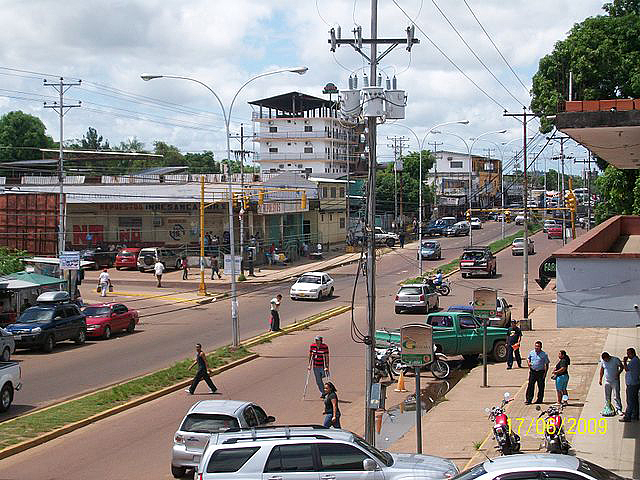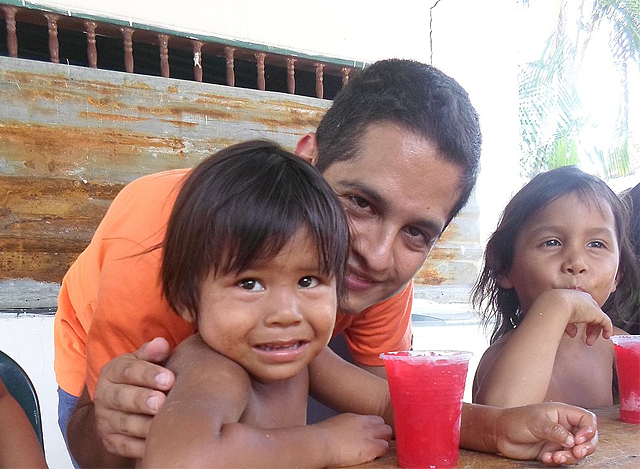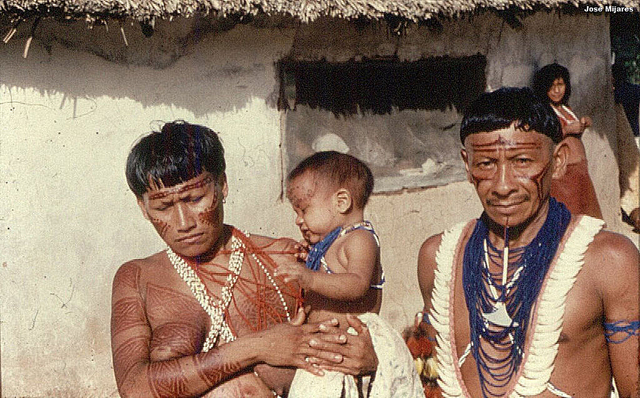On Wednesday January 23, the political crisis in Venezuela deepened when Juan Guaidó, leader of the national assembly, declared himself to be the interim president until another election could be held. He maintained that the earlier presidential election had been corrupt and that the victory President Nicholas Maduro had declared for himself was therefore invalid. According to international news reports, the governments of the United States and Canada immediately supported Guaidó’s move. In addition to the protests by opponents of the Maduro regime in foreign capitals, Venezuelans responded to appeals for support by the national assembly and joined demonstrations in favor of Guaidó’s call for another election.

Several young Piaroa in Puerto Ayacucho, the capital of Amazonas state, got involved in the demonstration that broke out that day in response to the announcement by the national assembly. A 19-year-old Piaroa man named José Francisco Díaz claimed he was just trying to intervene and prevent a brutal beating that the Bolivarian National Guard was inflicting on the young demonstrators, including some minors. He and a couple other Piaroa men were arrested by the police as they broke up the demonstration. His sister told one news service, in the words of the Google translation, “they put him in prison for defending some teenagers assaulted by the National Guard.”
The police had opened fire on a crowd of protesters, killing two men. They swept through the streets of downtown Puerto Ayacucho, capturing 23 people of whom 10 were indigenous. José Francisco and his brother were simply checking on transportation to return to their village in the Sisipa parish, Communidad Autana, when they got caught up in the police repression of the protesters. They saw the police attacking the teenagers and pleaded with them for mercy. The troops continued with their beatings.

According to José Francisco’s father, Carlos Díaz, his son “shouted at them to leave the boys, who were human beings.” The National Guard did not stop. A relative of the Díaz brothers managed to free the older brother but not José Francisco, who was arrested and taken by truck to the command post. Two other Piaroa young people, Leandro Coronel, 22, and Ender Herrera, 20, were also among those who were arrested.
Three days later, on Saturday January 26, Judge Dayana Matera confirmed the detention of the protesters, which included the three Piaroa and seven other indigenous people. They were charged with terrorism, obstruction of a public roadway, instigation of public disorder, and other related crimes. They will be held for 45 days, enough time for the public prosecutor’s office to determine if there is enough evidence against them .

Jorge Herrera, the father of Ender Herrara, argued that there is no evidence his son committed any of the crimes he is charged with. He was just coming home when the police arrested him. “He did not go to protest. He just went to look at what was happening,” Mr. Herrara said. Ender is a student at the Simón Rodríguez University, José Francisco is in the business of marketing manioc, and Leandro is a fisherman.
Two of the prisoners, juveniles, were released to their families in the afternoon of January 29, but the others are being detained in what could only be described as grim conditions. The jail evidently has no bathroom facilities so when a doctor was allowed to see them, he said that they smelled terrible. The prisoners have to sleep sitting up. Ender deserves medical help—he has an open wound on his head. The relatives of the prisoners were sending in food but they had no way of contacting their family members to see if they were getting any of it.